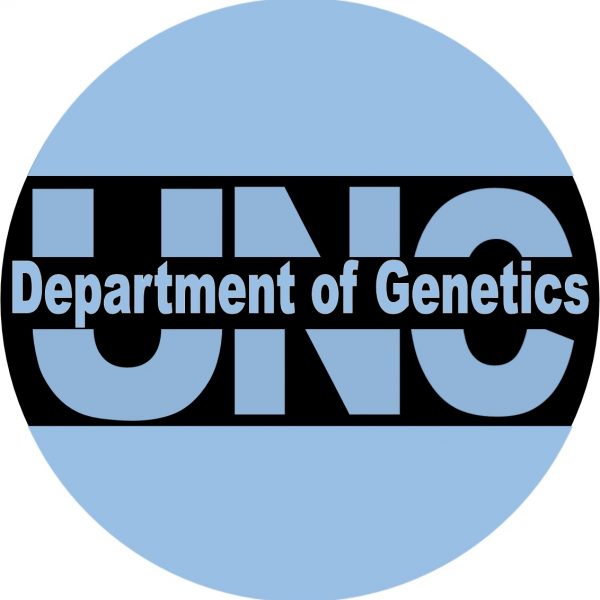Research Interests
Keywords: Viral pathogenesis, virus-host interactions, genetics of virulence, vaccine development, antiviral drug development
The Heise Lab uses a combination of molecular virology, viral immunology, and systems genetics approaches to study the pathogenesis of mosquito-borne and respiratory viruses. These viruses include chikungunya virus (CHIKV), a mosquito-borne alphavirus that causes severe arthralgia in humans, influenza A virus (IAV), a significant seasonal and pandemic threat to human health, and SARS-CoV2. Our CHIKV studies are focused on the identification of viral and host factors that contribute to the pathogenesis of CHIKV-induced tenosynovitis, and understanding how interactions among these factors affect disease outcomes. We are also part of a large interdisciplinary Systems Genetics program at UNC, where work in our lab is focused on the identification and characterization of polymorphic host genes that contribute to variation in the host immune responses following IAV, CHIKV, or SARS-CoV2 infection, as well as vaccination. In addition to gaining new insights into the pathogenesis of several significant human pathogens, our goal is to leverage this research to develop new vaccines or therapies for the prevention or treatment of these important human pathogens. As part of this effort, Dr. Heise is a founding member, along with Drs. Ralph Baric and Nathaniel Moorman, of the Rapidly Emerging Antiviral Drug Development Initiative (READDI), a consortium focused on the development of broad spectrum antiviral drugs designed to head off future pandemics.
Alphavirus Molecular Pathogenesis: We have developed a number of molecular clones and other reagent for analyzing CHIKV virulence determinants, and we are using these tools in combination with mouse models of CHIKV-induced tenosynovitis to study how specific viral genetic elements affect the pathogenesis of CHIKV-induced disease. We are also collaborating with several labs at UNC to identify novel RNA secondary structures within the genomes of CHIKV and other alphaviruses, and then test whether these RNA structural elements affect viral replication or disease pathogenesis.
Systems Genetics of Viral Infection or Vaccine Response: Host genetic variation plays a major role in determining how individuals respond to infection or vaccination, yet our understanding of these processes is incomplete. Therefore, we are using the Collaborative Cross (CC), a highly diverse mouse genetic reference population designed to model human genetic diversity, to study how host genetic variation affects susceptibility to viral infection or shapes the immune response following virus challenge or vaccination. These studies are focused on: 1) testing the impact of genetic variation on immune homeostasis, 2) mapping polymorphic genes that contribute to variation in IAV, CHIKV, or SARS-CoV2 infection, as well as vaccine-induced innate or adaptive immunity, 3) understanding how genetic variation affects the host response to different vaccine adjuvants, and 4) the identification of polymorphic genes that control susceptibility to acute CHIKV-induced joint disease.
Alphavirus Therapeutics: CHIKV and other alphaviruses are significant emerging disease threats, however there are currently no approved antivirals for treating alphavirus-induced disease. Therefore, we are using our alphavirus molecular biology expertise and mouse models of alphavirus-induced disease to test candidate antiviral molecules for their therapeutic efficacy against CHIKV and other emerging alphaviruses.
Coronavirus Vaccines and Therapeutics: We are working with academic and industry partners to develop and test new, broad spectrum antiviral therapies for treating SARS-CoV2 and other emerging coronaviruses. These efforts include projects evaluating both host targeted and direct acting antivirals, as well as studies evaluating the safety and efficacy of anti-inflammatory drugs for treating SARS-CoV2-induced pulmonary disease. We are also using mouse models of SARS-CoV2 pathogenesis to test the safety and efficacy of novel coronavirus vaccine platforms. These studies include efforts to identify host pathways that mediate protection against SARS-CoV2-induced disease, as well as the identification of host factors that contribute to vaccine-failure.
Mentor Training:
- Bias 101
- Faculty Mentoring Workshop for Biomedical Researchers
- HHMI Mentorship DEI Training
Training Program Affiliations:
- Genetics and Molecular Biology
- Microbiology and Immunology
Publications
Lab Members
Mark Heise in UNC Genetics News

March 31, 2024
Department of Genetics Publications for March 17th – 30th, 2024
Department of Genetics faculty, postdocs, students and collaborators published 7 papers during March 17th - 30th 2024.

February 5, 2024
Department of Genetics Publications for January 21st – February 3rd 2024
Department of Genetics faculty, postdocs, students and collaborators published 9 papers during January 21st - February 3rd 2024.

December 4, 2023
Department of Genetics Publications for November 19th – December 2nd, 2023
Department of Genetics faculty, postdocs, students and collaborators published 18 papers during November 19th - December 2nd 2023.

June 19, 2023
Department of Genetics Publications for June 4th – 17th, 2023
Department of Genetics faculty, postdocs, students and collaborators published 10 papers during June 4th - 17th, 2023.

June 4, 2023
Department of Genetics Publications for May 21st – June 3rd, 2023
Department of Genetics faculty, postdocs, students and collaborators published 15 papers during May 21st – June 3rd, 2023.

May 3, 2023
Dr. Mark Heise Inks Deal with Moderna Therapeutics to Develop Improved Models to Study Vaccine Safety and Immunogenicity
Mark Heise, PhD (Professor, Genetics and Microbiology & Immunology) was awarded a scientific research agreement from Moderna Therapeutics to utilize the Collaborative Cross (CC) to improve models to study the safety and immunogenicity of vaccines.

April 10, 2023
Department of Genetics Publications for March 26th – April 8th, 2023
Department of Genetics faculty, postdocs, students and collaborators published 10 papers during March 26th – April 8th, 2023.

February 27, 2023
Department of Genetics Publications for February 12th – 25th, 2023
Department of Genetics faculty, postdocs, students and collaborators published 9 papers during February 12th – 25th, 2023.

January 2, 2023
Department of Genetics Publications for December 18th – 31st, 2022
Department of Genetics faculty, postdocs, students and collaborators published 10 papers during December 18th – 31st, 2022.

November 16, 2022
Dr. Mark Heise Receives NC Collaboratory Award for Development of New Anti-Viral Treatment for COVID-19
Mark Heise, PhD (Professor, Department of Genetics) was awarded $2M by the NC Collaboratory, a research program funded by an appropriation from the North Carolina General Assembly that aims to foster and strengthen partnerships between businesses and academic research groups to transform applied research and innovation into technological solutions for the benefit of public health and the economy in the state.

